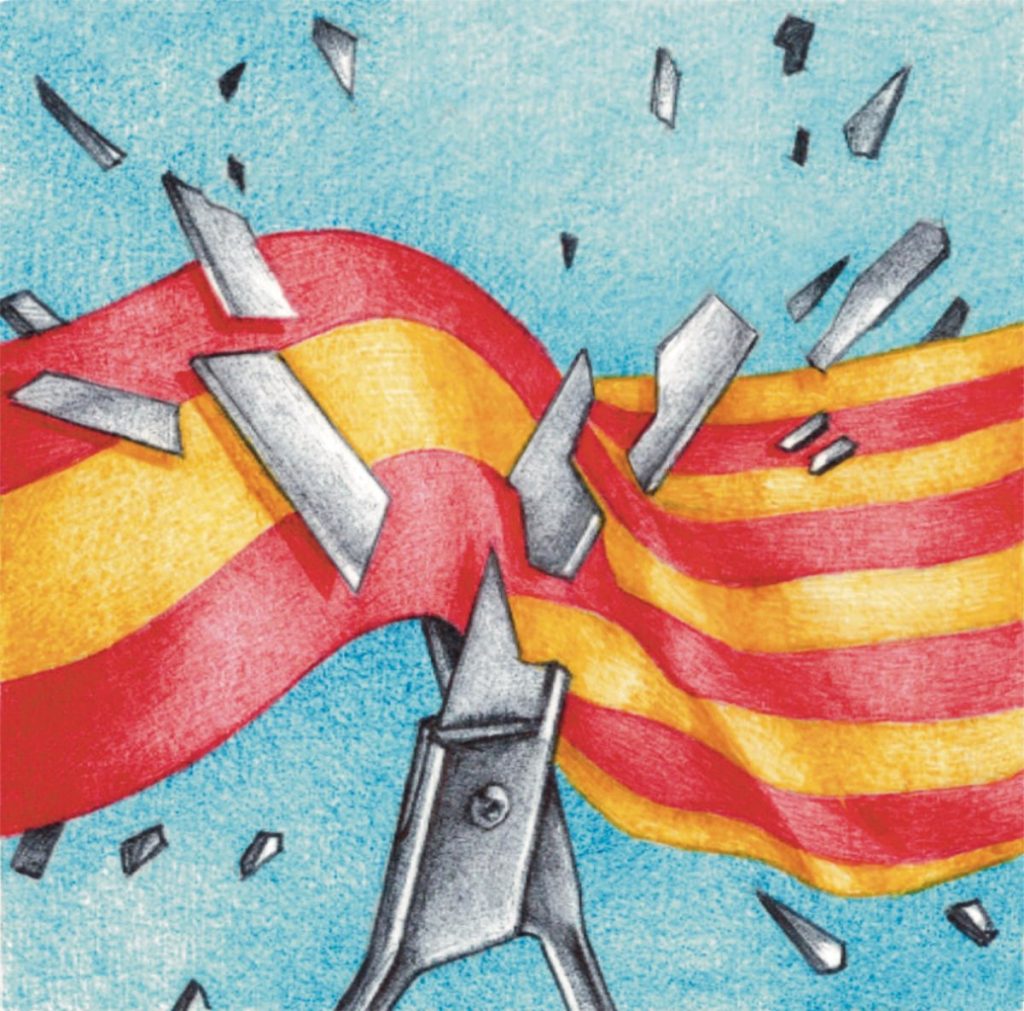The author reflects on the evolution of Catalan nationalism, highlighting the shift from Catalanismo to independence as the dominant ideology. Catalanismo initially emerged in the 1970s as a narrative focused on preserving Catalan language and culture, while also promoting self-government within the framework of the Spanish Constitution. The author describes Catalanismo as a system of political and cultural balances that allowed individuals to maintain their identity without having to choose between Spain and Catalonia. This approach was characterized by an emphasis on the coexistence of Catalan and Spanish cultures, and a recognition of the internal diversity within Catalonia.
The emergence of independence as a central movement in Catalan politics marked the demise of Catalanismo. The author argues that the binary nature of the independence movement forced individuals to define themselves as either Spanish or Catalan, eroding the previously held concept of a fluid national identity. The author believes that the insistence on choosing one side over the other ultimately led to the downfall of Catalanismo, which had previously allowed for a sense of freedom in terms of national identity. The author describes how the independence movement sought to eliminate Catalanismo in order to establish a clear dichotomy between Spain and Catalonia.
By dismantling Catalanismo, the independence movement not only destroyed the notion of a flexible national identity but also alienated individuals who had previously embraced causes such as language, culture, and self-government. The author suggests that the independence movement failed to garner widespread support for these causes, which were once integral to the Catalan identity. The author argues that the rejection of Catalanismo in favor of independence led to a loss of allies who were previously sympathetic to these causes but no longer saw them as central to their political identity.
The author predicts that Catalanismo is unlikely to make a comeback, as the main political parties in Catalonia have shifted towards pragmatism in order to gain electoral advantage. The author points out that the Catalan Socialist Party, for example, has abandoned its support for Catalanismo in favor of more strategic political positions. The author criticizes the independence movement for prioritizing the pursuit of an independent state over the preservation of consensus around key cultural and linguistic issues. The author warns that the obsession with binary choices has not only been destructive but also self-destructive for the independence movement.
The author concludes by reflecting on the consequences of the independence movement’s failure to achieve its goals and maintain broad support for its causes. The rise of the far-right party Aliança catalana, which promotes exclusionary and nationalist ideals, is presented as a troubling outcome of the independence movement’s shortcomings. The author warns that the erosion of consensus around language and culture, along with the association of independence with extremist ideologies, may have lasting negative effects on Catalan society. The author argues that the binary mindset that underpins the independence movement is not only divisive but also poses a threat to the fabric of Catalan identity and politics.


